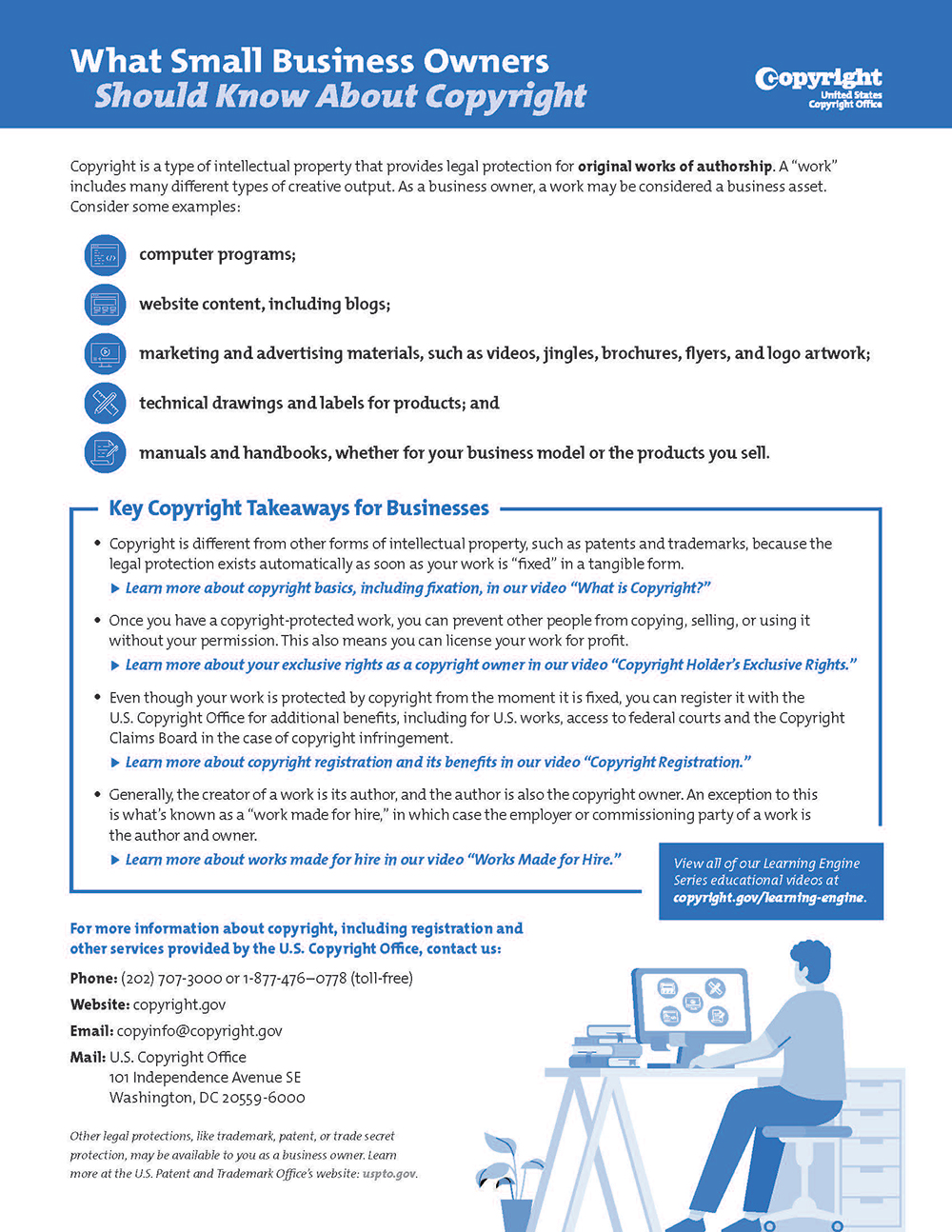What Writers Should Know about Copyright

If you’re a writer, there are a few key things to know about copyright law and the protections available to you.
First, copyright protects original works of authorship, including literary works like books, essays, articles, blogs, and poetry. Generally, works that are considered “literary works” are intended to be read; they are not intended to be performed before an audience like plays, which are considered “works of the performing arts.” Copyright protection does not extend to names, titles, short phrases, ideas, methods, facts, or systems. It does, however, cover specific creative expression. For example, copyright does not protect the general idea of a group of friends who journey on a heroic quest to defeat evil. However, it will protect the creative expression of this idea, like the book A Wrinkle in Time by Madeleine L’Engle. As a copyright owner, you have the right to make, sell, or otherwise distribute copies; adapt the work; and publicly recite or display your work.
Second, you should know that copyright protection exists from the moment an original work is “fixed” in a tangible medium. For writers, fixation occurs when your ideas are written down on paper or typed using a computer, for example. You don’t need to do anything else for your work to be protected by copyright.
Registering Your Work
Although your work is protected by copyright from the moment it is fixed, the U.S. Copyright Office recommends registering your work with us to create a public record of your ownership and for additional legal benefits like the ability to bring an infringement claim for U.S. works in either federal court or with the Copyright Claims Board (discussed below). Applying for registration with the U.S. Copyright Office requires an application, a filing fee, and a copy of the work (which the Office calls a “deposit”).
There are several different online application options depending on how many works you want to register and whether your work has been published. For copyright purposes, a piece of writing is published when it is distributed to the public by selling, renting, leasing, lending, or otherwise transferring ownership of the copies. It is also published if it’s offered to a group for further distribution, public performance, or public display.
To register one literary work, such as one poem or one story, published or unpublished, use the Standard Application.
Other options for unpublished works:
- Group Registration for Unpublished Works, for registering up to ten unpublished works all by the same author and the author is the claimant.
Other options for published works:
- Group Registration for Short Online Literary Works, for registering up to fifty short online literary works, such as blog entries, social media posts, and short online articles.
- Group Registration of Contributions to Periodicals, for works first published as a contribution to a periodical, such as a newspaper, magazine, or journal.
You can reach out to our help team for assistance determining the best option for you.
A Note on Works Made for Hire
Generally, the author and initial copyright owner of a work is the person who writes the piece. One limited exception to this rule is when a work is created as a “work made for hire.” A work made for hire occurs when an author creates a work as part of their scope of employment (like a staff writer at a publication), or when there is an express agreement between the writer and commissioning party to create a work that fits into a category specifically identified in the copyright law (like a translation). For more information, see Works Made for Hire (Circular 30). If the literary work was created as a “work made for hire,” the employer or commissioning party is considered the author and owns the copyright to the work rather than the writer.
If Your Work Is Used Unlawfully
It is your right to pursue legal action if your work is used unlawfully without your permission and not under a statutory exception or limitation like fair use. However, if your work is a U.S. work, you do need to register it with the Copyright Office before bringing an infringement lawsuit in federal court. Also, if you take someone to court for using your work without your permission and you want to try to have your attorneys’ fees covered or pursue certain other types of compensation (called statutory damages), the timing of your registration matters. See Circular 1 for more on that.
Generally, copyright lawsuits are decided in federal court. You may also choose the Copyright Claims Board (CCB), a voluntary forum within the Copyright Office to resolve copyright disputes involving damages totaling less than $30,000. It is intended to be a cost-effective and streamlined alternative to federal court. To use the CCB, you also must have filed an application to register your copyright.
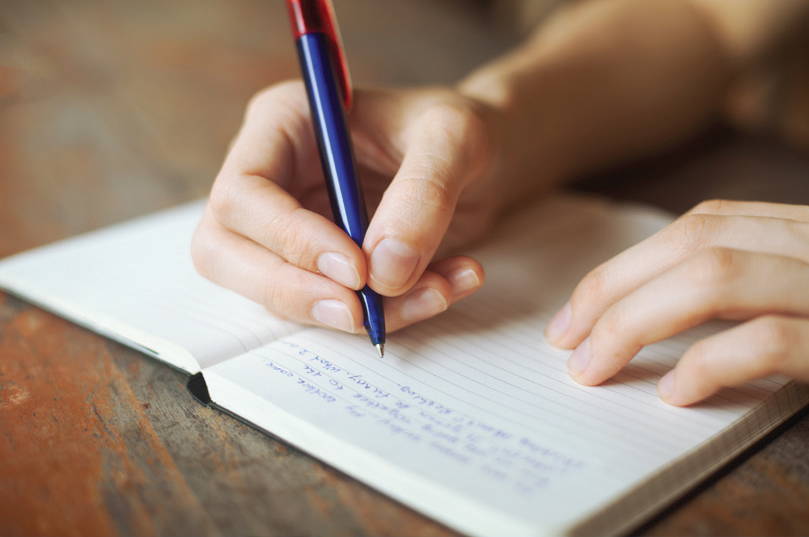
Copyright protection exists from the moment your work is fixed, like when it's written down.

Although your work is protected by copyright from the moment it is fixed, you can register your work with the U.S. Copyright Office for additional benefits, including access to federal courts and the Copyright Claims Board in cases of infringement.

If your work is used unlawfully, without your permission or a statutory exception or limitation, it is your right to pursue legal action.
Additional Resources
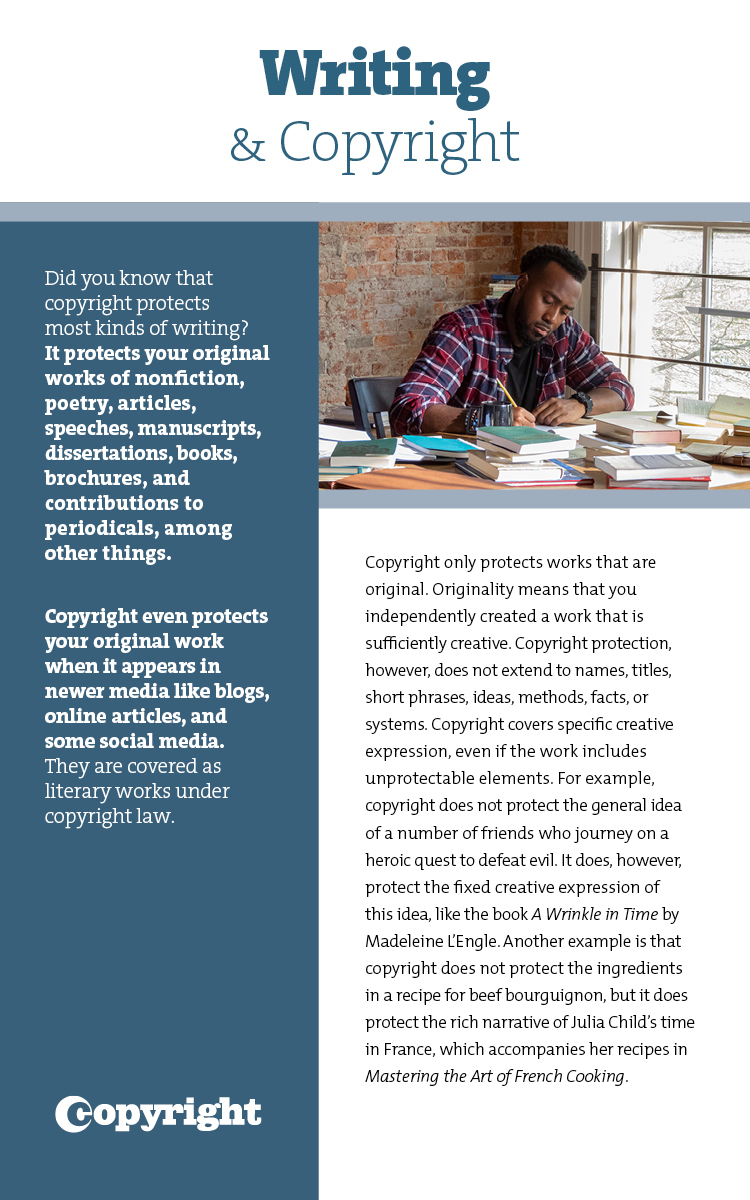
Literary Works
Information for literary works applications.
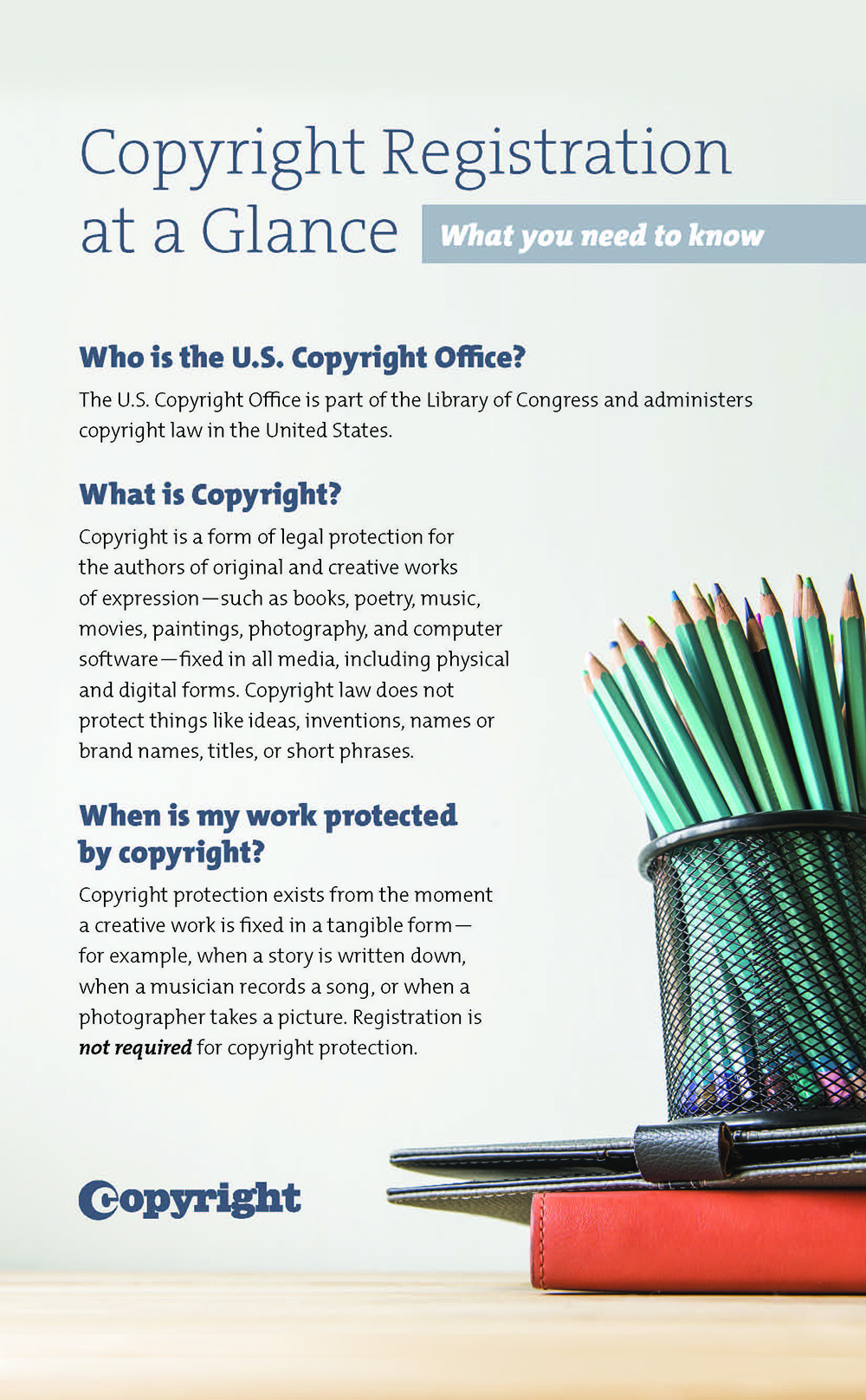
Registration At a Glance
The who, what, where, when, why, and how of copyright registration.
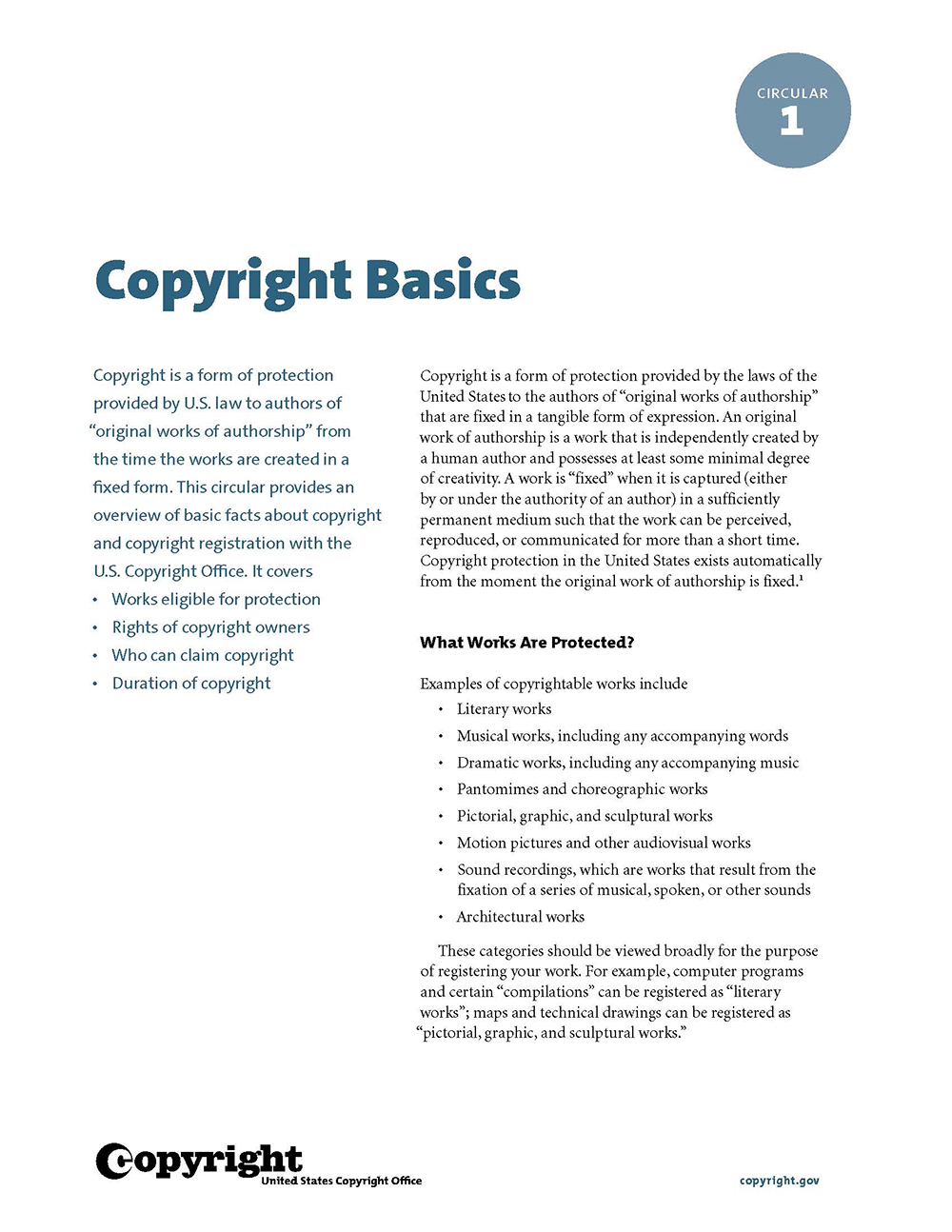
Circulars
Circulars provide up-to-date and authoritative information to a general audience.
